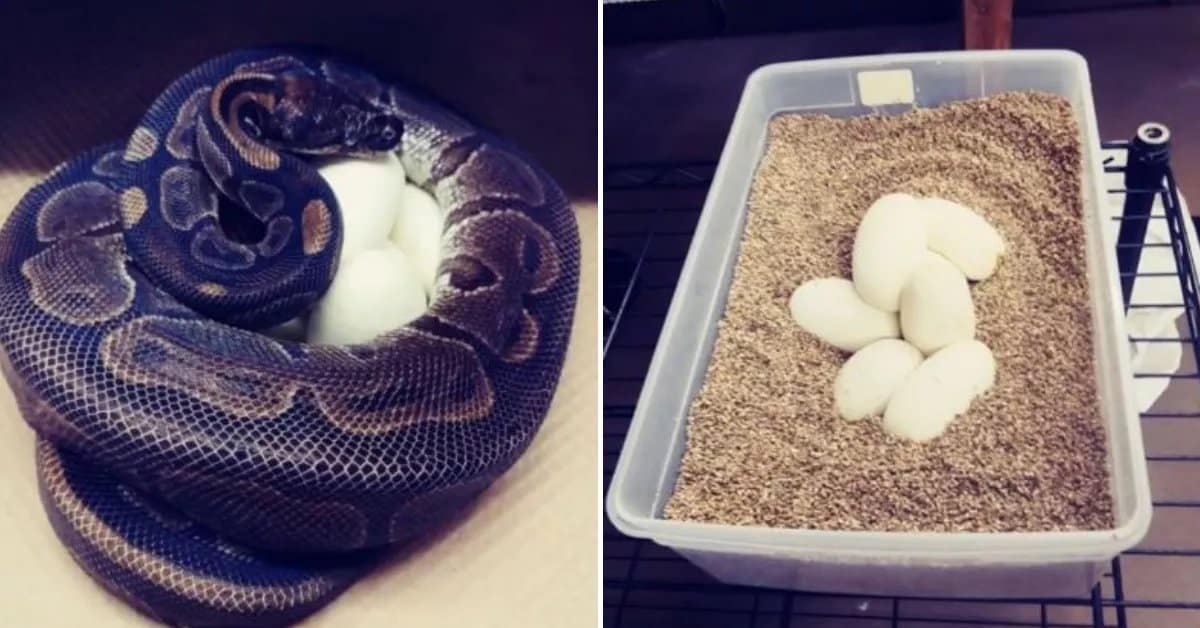Experts at a Missouri zoo are perplexed by a 62-year-old ball python after she laid seven eggs more than 15 years after her last encounter with a male.
As CNN reported, the Saint Louis Zoo’s staff was understandably shocked to learn that their oldest snake had recently given birth seven times, reportedly without the aid of a male. But, believe it or not, she has actually used this ruse before.
Officials from the zoo found the snake on July 23, coiling around her eggs and only known by the number 361003.
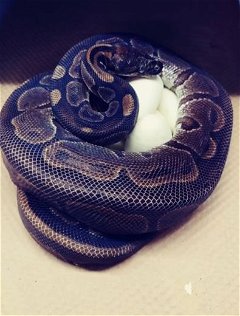
“That might not sound too thrilling to some, but to our Herpetarium staff it definitely was,” a Facebook post from the zoo announcing the birth said. “This particular female snake is over 50 years old (the oldest snake documented in a zoo) and has not been with a male in over 15 years!”
Ball pythons are known to reproduce asexually, but what makes this particular snake unusual is how long it had been since her last encounter with a male.
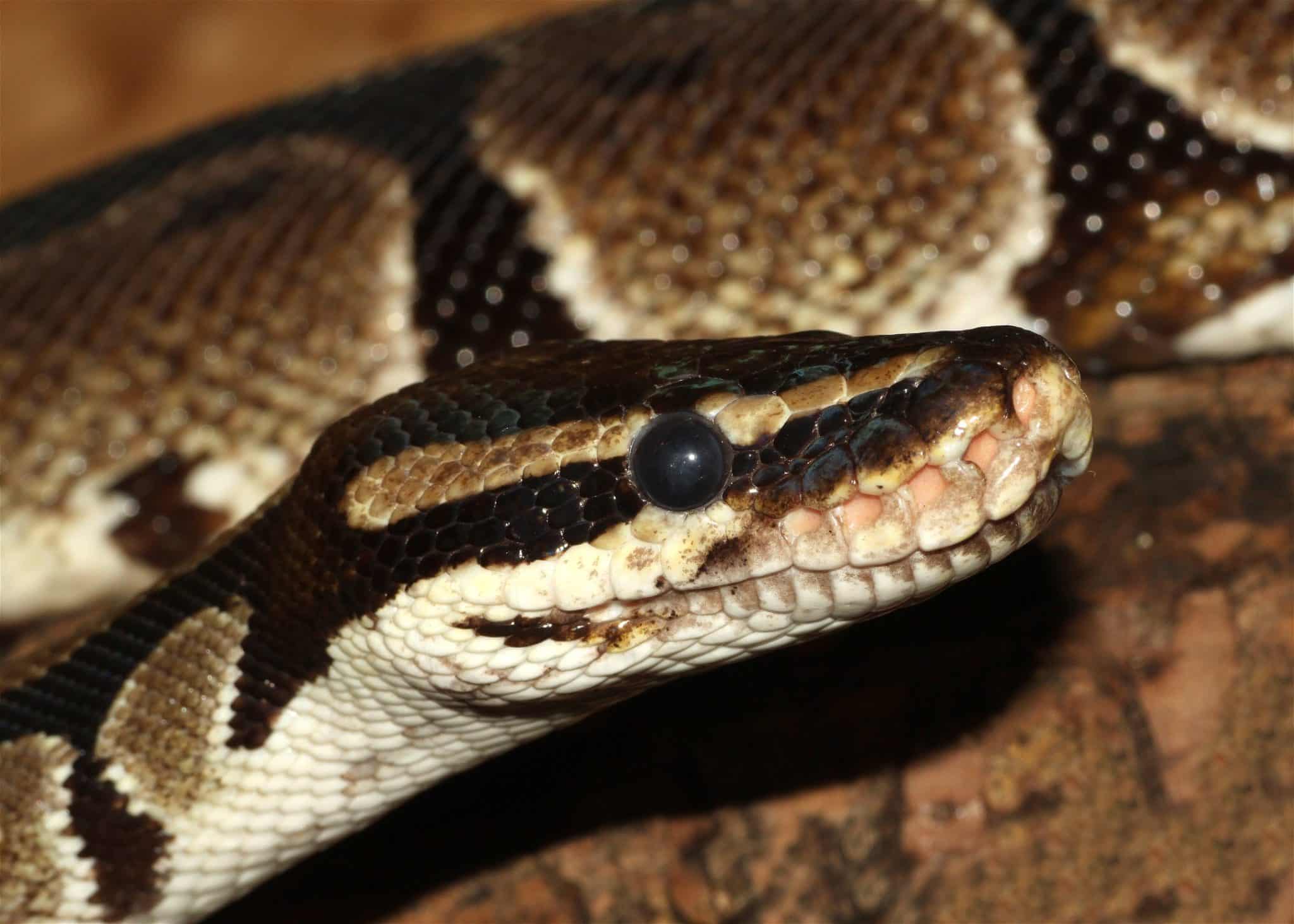
“We’re saying 15 plus years, but I mean, it’s probably easily closer to 30 years since she’s been physically with a male,” Mark Wanner, the Zoological Manager of Herpetology told CNN.
Due to the practice of keeping snakes in the same bucket while their cages were cleaned, it is likely that the last time this particular snake interacted with a male was between the late 1980s and early 1990s.
Although females can hold onto sperm for postponed fertilization, the longest instance of this that has been documented was seven years.
The biological characteristics of the eggs are important, but so is the female’s age, which is thought to be around 62.
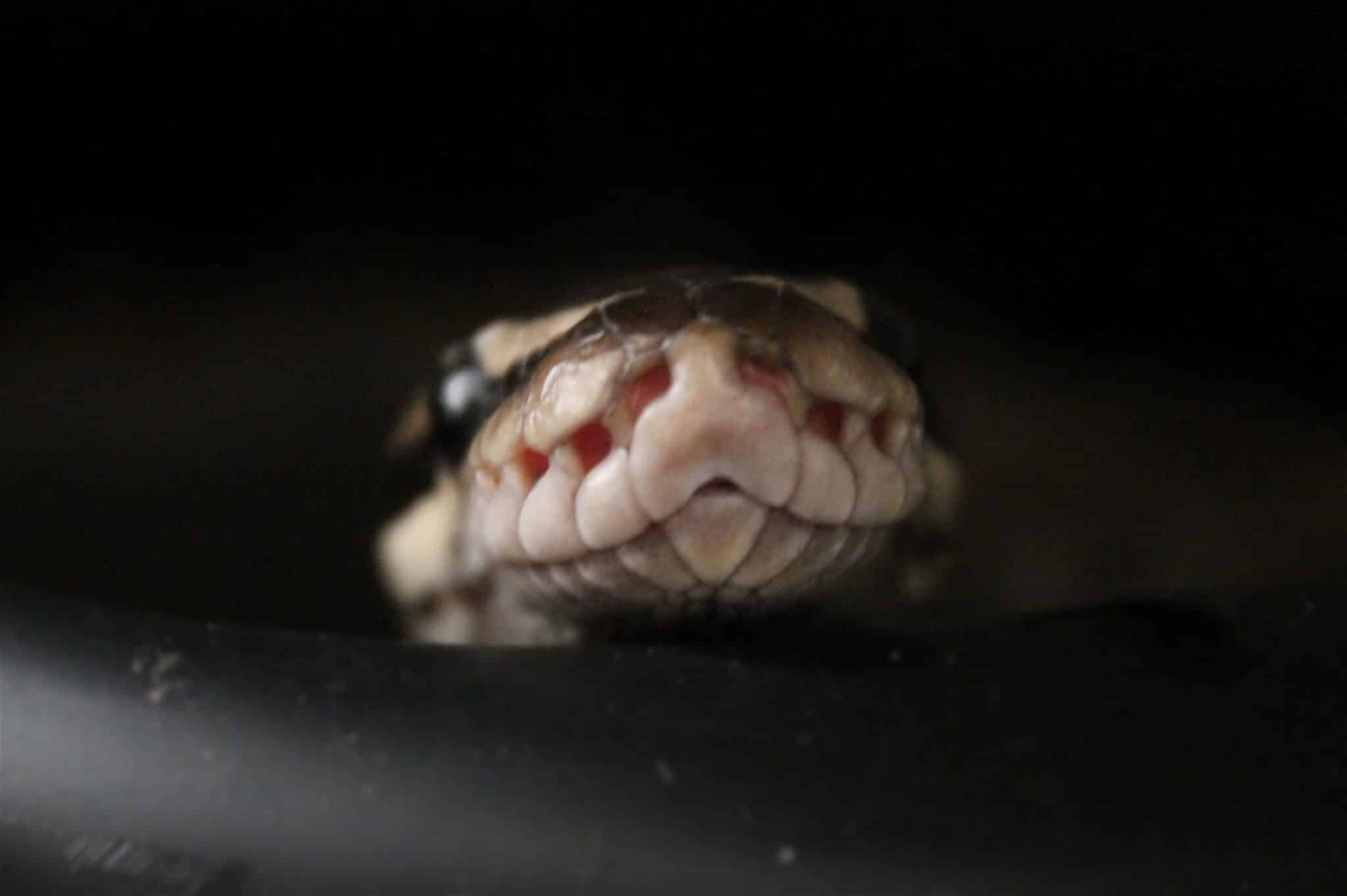
This is due to the fact that female ball pythons usually stop reproducing long before they turn 60. But it was obvious that this particular snake wasn’t quite ready to give up just yet.
“She’d definitely be the oldest snake we know of in history [to lay eggs],” Wanner told CBS News.
Even though this is a shocking occurrence, this python has previously stunned zoo staff with some unplanned eggs.

She hatched none of the eggs she laid in 2009, despite there being evidence that she had previously been in the presence of males.
Two of the python’s seven eggs have already been removed for genetic testing to establish whether or not she gave birth naturally or asexually.
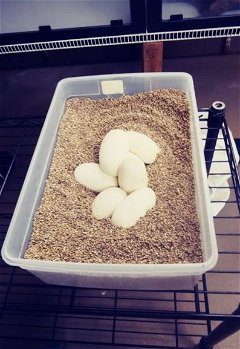
Two more eggs have perished. Three more are still being incubated; they are currently about halfway through. Wanner stated that they anticipate receiving the genetic test results in a month.
“We can’t wait for the samples to be tested to actually get that information because that will end any of the hearsay or whatever we might think could or couldn’t be,” he said.
“If [the eggs] continue to live and continue to develop, we expect hatching to be in the next two to three weeks,” he added. “We’ve got our fingers crossed that one of these animals will hatch, but we don’t know for sure.”


